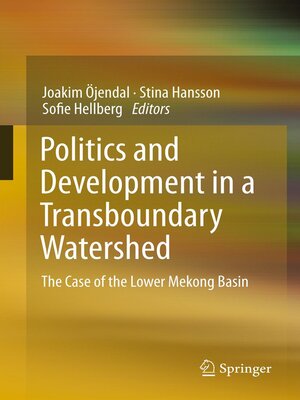Politics and Development in a Transboundary Watershed
ebook ∣ The Case of the Lower Mekong Basin
By Joakim Öjendal

Sign up to save your library
With an OverDrive account, you can save your favorite libraries for at-a-glance information about availability. Find out more about OverDrive accounts.
Find this title in Libby, the library reading app by OverDrive.



Search for a digital library with this title
Title found at these libraries:
| Loading... |
Water - and its governance - is becoming a global concern partly because it is turning into a goods in short supply, with devastating effects on literally billions of people, but also because it is the "carrier" of global warming; whether through irregular weather patterns or through flooding, water is how global warming will be 'felt'. The lion's share of the globally available fresh water resources is to be found in transboundary systems. In spite of its significance, the generated knowledge on how to deal with transboundary waters is weak and leaves policy makers with seemingly unavoidable, trade-off dilemmas and prioritizations, often with detrimental effects. In order to disentangle this predicament this volume works with one case: the Lower Mekong Basin and covers state-of-the-art academic and practitioners' knowledge and hence appeals to a wide audience. The topic this volume addresses is situated in the nexus of an IR- (International Relations) approach focussing on transboundary politics and its inclination to remain within the sphere of state sovereignty and national interest on the one hand, and Development studies, with its imperatives on participation, planning, and intervention, on the other. The dilemma, we argue, of better understanding transboundary water management lies in how to understand how these two rationalities can be simultaneously nurtured.
Audience: This book will be relevant to scholars, as it provides cutting-edge research, and students, since it covers the primary debates in the field, interested in resource management, regional politics, and development issues in the area. It also addresses the global debate on transboundary water management and presents an in-depth case of one of the globally most sophisticated attempts at pursuing sustainable river basin management. Finally, practitioners and policymakers would benefit greatly because all contributions have explicit policy relevance, launchingsuggestion on improvements in water management.






